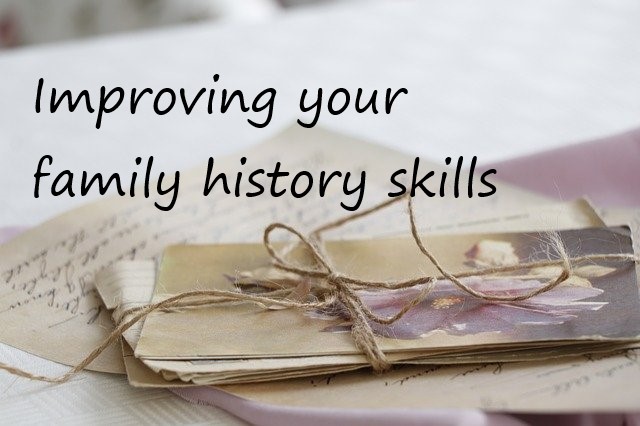

Come, Follow Me is a resource offered by The Church of Jesus Christ of Latter-day Saints. It is designed to be used in the home to support personal and family scripture study to build faith in Heavenly Father and His plan of salvation and in the Savior Jesus Christ and His Atonement. Come, Follow Me is self-contained and adequate, when used properly. Products and materials designed to supplement this resource, though they may be helpful in some instances, are not necessary for a successful home study program.

May 2–8
Exodus 35–40; Leviticus 1; 16; 19
The Lord wants me to become holy as He is.
From Come, Follow Me:
Exodus 25–31 records the Lord’s instructions to the Israelites about how to build a tabernacle, where sacred ordinances would help them become a holy people. Exodus 35–40 describes the Israelites’ efforts to obey these instructions. As you read chapters 35–40, look for the things the Lord asked His people to place in the tabernacle, and ponder what these items could represent and what they suggest to you about increasing in holiness….
If you have participated in temple ordinances, what do you learn about the tabernacle from Exodus 35–40 that reminds you of your experience there?... Ponder how temple covenants help you become more holy like Heavenly Father and Jesus Christ.
“Since ancient times, whenever a faithful people has been on the earth, God has blessed them with temple covenants and ordinances….In the temple, great blessings are also made available to God’s faithful children in this life. In temple covenants and ordinances, “the power of godliness is manifest” (Doctrine and Covenants 84:20). The temple is a holy place where members can worship, learn, and receive guidance and comfort (see Doctrine and Covenants 109:13–16). Those who attend the temple can have access to God’s power to help accomplish His work (see Doctrine and Covenants 109:22–23; see also 3.5 in this handbook).
“Temple covenants and ordinances are sacred. The symbols associated with temple covenants should not be discussed outside the temple. Nor should we discuss the holy information we promise in the temple not to reveal. However, we may discuss the basic purposes and doctrine of temple covenants and ordinances and the spiritual feelings we have in the temple. (General Handbook 27. Temple Ordinances for the Living)

Think of the ordinances members of your family have received. What have you promised and what are the blessings promised to you? How do these ordinances help you and your family become a “holy people”? How do they “help you become more holy like Heavenly Father and Jesus Christ”? How do these ordinances bless your deceased ancestors as ordinances are performed for them in the temple? Using references in the table below may help you with your discussion.
Again, a reminder for your discussion: “Temple covenants and ordinances are sacred. The symbols associated with temple covenants should not be discussed outside the temple. Nor should we discuss the holy information we promise in the temple not to reveal. However, we may discuss the basic purposes and doctrine of temple covenants and ordinances and the spiritual feelings we have in the temple. (General Handbook 27. Temple Ordinances for the Living)
|
What covenants did you make? |
What are your responsibilities? |
What are you promised? |
|
Baptism & Confirmation |
||
|
Melchizedek Priesthood Ordination |
||
|
Initiatory and Endowment
Initiatory Ordinance
Law of Obedience
Law of Sacrifice Law of the Gospel Law of Chastity
Law of Consecration |
||
|
Sealing |
The Lord asks me to make my offerings with a willing heart.
From Come, Follow Me:
In the year after leaving Egypt, the relationship of the children of Israel with Jehovah could be described as inconsistent. And yet, as you read Exodus 35:4–36:7, notice how the Israelites responded to the commandment to build the tabernacle. What do you learn from the Israelites that could help you better serve the Lord?
President Bonnie L. Oscarson taught: “Each member should know how much he or she is needed. Each person has something important to contribute and has unique talents and abilities that help move this important work along” ... As you read Exodus 36:1–4, ponder what the Lord has “put” into you. Consider asking Heavenly Father what He has given you so that you can participate in His work.
Many skilled craftsmen were invited to lend their talents to the building and furnishing of the tabernacle. Each had something to contribute towards its completion. What skills and abilities do you have? Have any of these skills or abilities been passed down to you? What are some of the talents or skills of your ancestors?


Find some stories about your ancestors and see if you can discover some of their skills or talents. What abilities might you share with your ancestors? “Talk to family members who knew the ancestor, examine their career choice, see if there are any letters or diaries written by them, and make sure you investigate any hometown newspaper articles about the individual. There might be a news article about the ancestor winning the hometown 6th grade spelling bee. They may have never won any other spelling contests, but they did win that one. That is a talent. Might find a grandmother won a blue ribbon at the county fair for a winning chocolate cake. That is talent.” (An Ancestor's Unique Talent | FamilyTree.com)
Learning Details about a Beloved Ancestor can also help you form a bond with your ancestor. If you need help finding stories, check out 10 Ways to find ancestor stories.

If you could step back in time, what would your ancestor's occupation look like? Look at some of your ancestors on your family tree and see if you can determine their occupations. Was it a family business? Did their parents have the same occupation? Did you find any unusual occupations?
If you find an occupation listed that is unfamiliar to you, you might want to Google it or check out this Listing of Some Early Occupations. If you need help finding occupations, Lisa Louise Cooke shares three ways on How to Research Your Ancestors' Occupations:
Learn more by reading Finding Your Ancestors Using Employment Records, Is it possible that my farmer ancestor had more than one occupation or How to Discover Your Ancestor's Occupation.
You might also enjoy watching a couple of RootsTech videos on ancestor occupations:
Discover Your Ancestors' Occupations
Ankle Beaters and Barkers: Exploring Our Ancestors' Occupations

Over time, certain jobs became obsolete. Have you found any ancestors with occupations that are now obsolete? Why was their occupation no longer considered useful? What trade did your ancestor choose to move on to? Have fun Testing your Knowledge on Jobs that No Longer Exist. You can look through a List of Old English Occupations and Descriptions and see which ones you recognize. How many are still relevant today?

Attaching Sources from Record Hints
When you find a record hint for your ancestor, you can attach that hint as a source in your ancestor’s Person page. That way, others can see the evidence you have found. You can follow the step-by-step process for attaching sources in Project 1: Family Tree, Goal 9, Choice B.